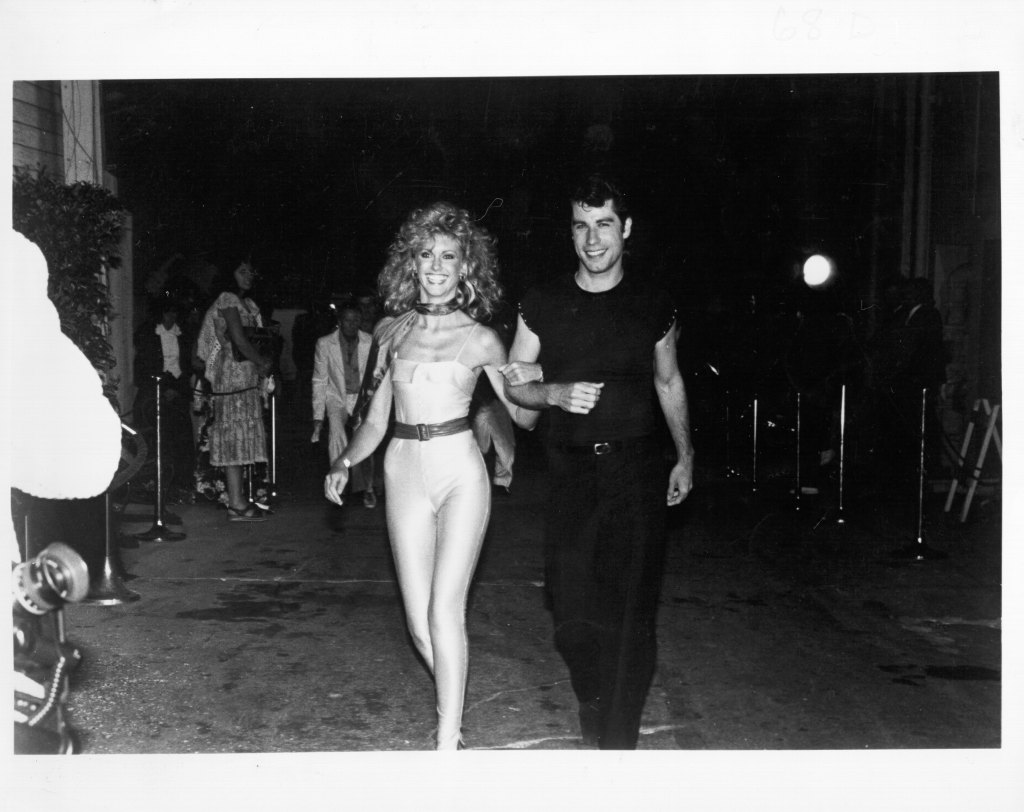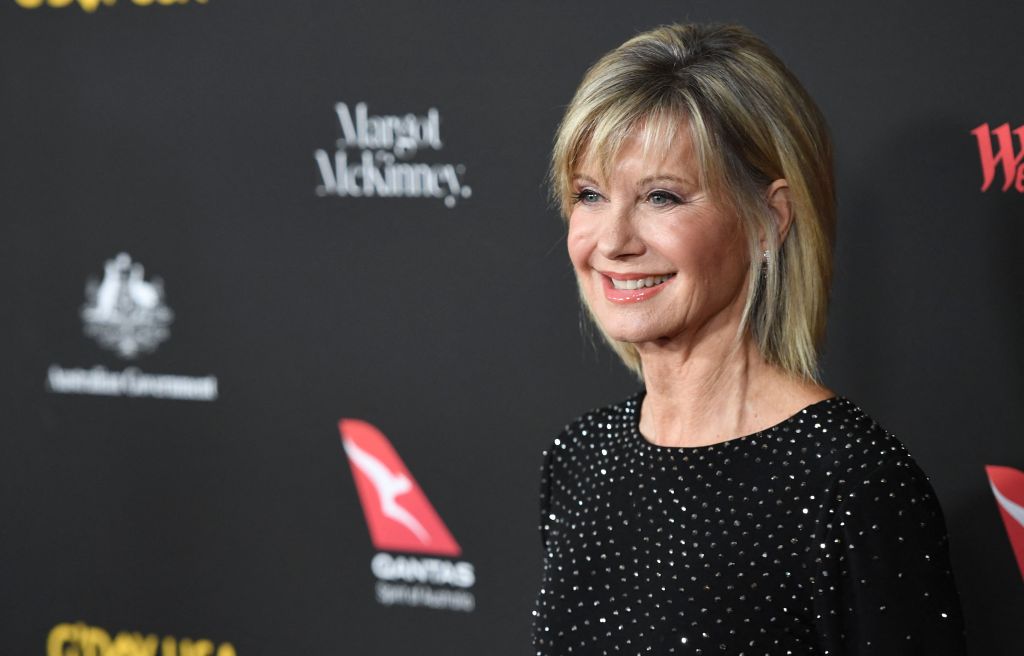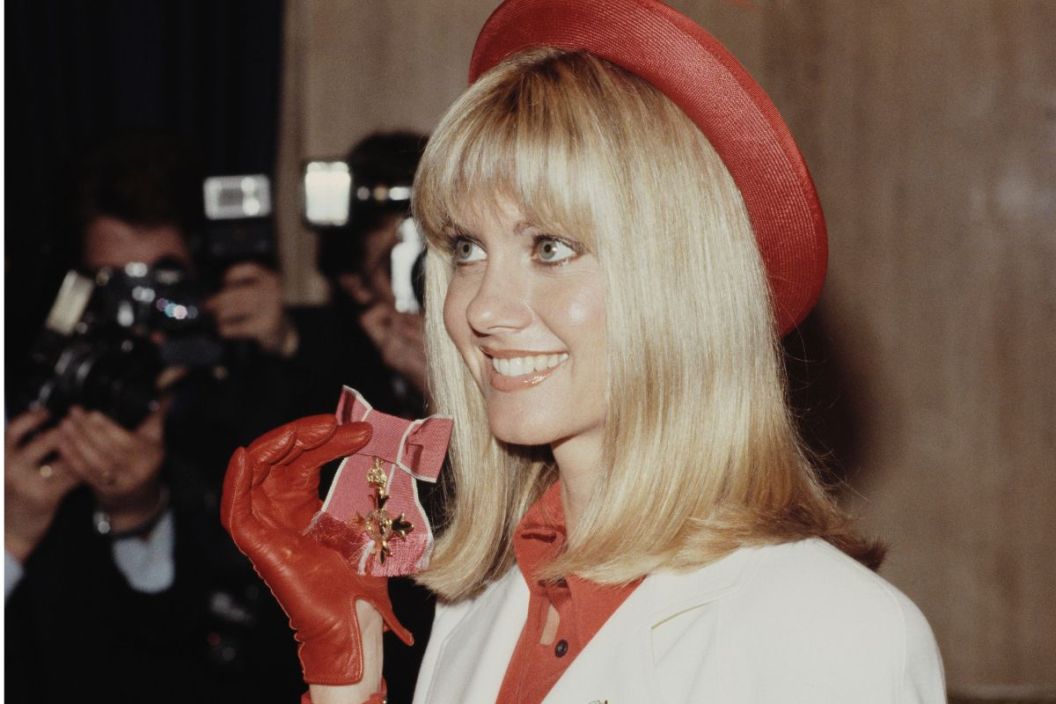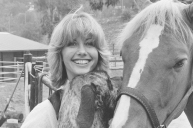Olivia Newton-John died on Mon., Aug. 8, 2022, at the age of 73. As the tributes rolled out, people remembered her as the effervescent star of Grease, the 1978 adaptation of the stage musical in which she captured hearts as 1950s wide-eyed good girl Sandy. They also paid tribute to her 1981 song "Physical," the title track of her 11th studio album, which featured risque lyrics and a hilarious, memorable music video that took place in a gym and featured Newton-John in her iconic headband, leg warmer, and leotard, lifting weights and doing aerobics while singing "let me hear your body talk."
Finally, a few mentioned Newton-John's earlier years in which she took America by storm as a surprise country music star. Olivia's presence on the country charts and eventual win of the 1974 Female Vocalist of the Year award from the Country Music Association outraged certain traditional country artists. A group of disgruntled performers, led by none other than George Jones and Tammy Wynette, responded by forming an alternative organization, the Association of Country Entertainers (ACE), which swore to "preserve the identity of country music as a separate and distinct form of entertainment," per Billboard.
Who is Olivia Newton-John?

Michael Ochs Archives/Getty Images
Newton-John was born Sept.26, 1948 in Cambridge, England. When she was six years old, her family emigrated to Melbourne, Australia. She formed an all-girl singing group when she was 14 and went on to appear on Australian television and eventually won a trip to record in England after a contest on the television program Sing, Sing, Sing. She recorded her first single for Decca Records in 1966.
Newton-John had her first international hit in 1971 with the album If Not For You, the title track of which was a cover of the Bob Dylan song. Two years later, she had a pop and country hit with the song "Let Me Be There," which reached No. 6 on the Billboard Hot 100 and No. 7 on the Billboard Hot Country Songs chart. The song, written by John Rostill, represents the Newton-John aesthetic well.
It's a sunny, cheerful, laid-back ode to love singing in her high, sweet vocals that evoke fluffy clouds, faded jeans, kittens in a wicker basket, bubblegum Kissing Potion lip gloss and strolling through a grassy meadow hand in hand with a new crush. It's light, it's happy, it's kind of gooey, but it's irresistible and was very much what a lot of people wanted to listen to on the radio in 1973. It also won Newton-John a 1974 Grammy award for Best Female Country Vocalist, beating out fellow nominees Marie Osmond, Barbara Fairchild, Tammy Wynette and Dottie West.
A Country Star Is Born
The Grammy Award was just the beginning of Newton-John's country takeover. Olivia reportedly had a penchant for quotes like "I enjoy country music but I don't know much about it" and there was a rumor that she had expressed an interest in meeting Hank Williams during a visit to Nashville, not knowing that he had died in 1953. This story is so infamous nearly 50 years after it might have happened that it appeared in her Washington Post obituary.
Established country music stars may have been upset when Olivia Newton-John took home the Best Female Country Vocalist Grammy, but several of them were downright furious when she proceeded to beat out Loretta Lynn, Dolly Parton and Tanya Tucker (as well as Canadian crossover star Anne Murray) to win Female Vocalist of the Year at the Country Music Association Awards.

Ian Dickson/Redferns/ Getty Images
Perhaps people expected the Grammys to err on the side of pop but couldn't take what was perceived as a snub of a more traditional and explicitly country sound from an association specifically devoted to country music. As reported by Billboard, ACE organizers George Jones and Tammy Wynette were joined by 50 fellow performers, including Dolly Parton, Barbara Mandrell, Johnny Paycheck, Conway Twitty, Roy Acuff and Porter Wagoner.
Membership dues were $25 and restricted, per The New York Times, "exclusively to those persons who make their living as country music entertainers and who identify themselves primarily as such." According to singer Billy Walker, "We're mainly the people who made country music what it is today, trying to protect our business, because we see it flaking off in thousands of directions. We're trying to keep it at home."
Top Country Hits
Of course, there have always been performers who walk the line, so to speak, between country and pop — several of the charter members of ACE fit that description themselves. The 1970s were all about new sounds in country music, from the pop stylings of Newton-John and John Denver, whose 1975 win of CMA's Entertainer of the Year prompted Charlie Rich, the 1974 winner, to set the ballot on fire right on stage.
To the "Outlaw" sounds of Willie Nelson and Kris Kristofferson, to the country-rock of bands like the Eagles and Poco as influenced by the "cosmic American music" of Gram Parsons, all of which expanded country music's fan base and, of course, brought in more money.

Gabe Ginsberg/Getty Images
The New York Times noted that between 1961 and 1974, the number of full-time country radio stations in the world expanded from 81 to 1,150 with hopes of attracting more listeners. It makes sense that crossover artists appealed to music industry executives and decision-makers, and it also makes sense that traditional country artists would feel threatened by a more pop-oriented industry that seemingly sought to edge them out in favor of a more middle-of-the-road sound.
All in all, seven of Newton-John's songs were Top 10 Hot Country Songs hits between 1973 and 1975, including her signature tunes "Have You Never Been Mellow" and "I Honestly Love You"; the songs were also hits on the pop and adult contemporary charts. Artists like Taylor Swift, Carrie Underwood, the Chicks, Shania Twain and many more have enjoyed pop and country success, a path laid out by Newton-John decades ago.
"Ode To Olivia"
One of Newton-John's most outspoken defenders within the world of country music was Dolly's sister Stella Parton, who wrote the song "Ode To Olivia" with Bob G. Dean in the aftermath of the formation of ACE. The lead single off her 1975's I Want To Hold You In My Dreams Tonight proclaimed that critics "ain't got the right" to scorn "county girl" Newton-John, and wove the titles of six Newton-John songs into the lyrics.
In the 2008 book Smart Blonde: The Life of Dolly Parton, Stella is quoted: "I was trying to apologize to [Olivia]...I thought it was embarrassing that [the members of ACE] had got so irate that they had gone to so much trouble." Stella went on to reminisce about the first time she played the song for Dolly, who responded "Oh Lord, Stella, don't let Porter hear that!" (Stella's typically sassy response: "Screw Porter, I don't care what he thinks!")

ROBYN BECK/AFP via Getty Images
As for Dolly, by 1977 she was playing down her involvement with ACE, saying "I only went to one meeting, and that was the first one. I didn't know what they were doing and I don't know now." She was also a Newton-John fan, calling Olivia's cover of "Jolene" "one of the better things that's been done with my songs."
ACE disbanded within a few years, although they did put out one double compilation album, Proud Country. Some members remained critical of Newton-John for decades after its dissolution. When singer Jean Shepard, who served as ACE president, died in 2016, her obituary ended with a quote from a 2012 interview in which she said of Newton-John, "She's a very sweet lady, I'm sure, but what she sang wasn't country music."




